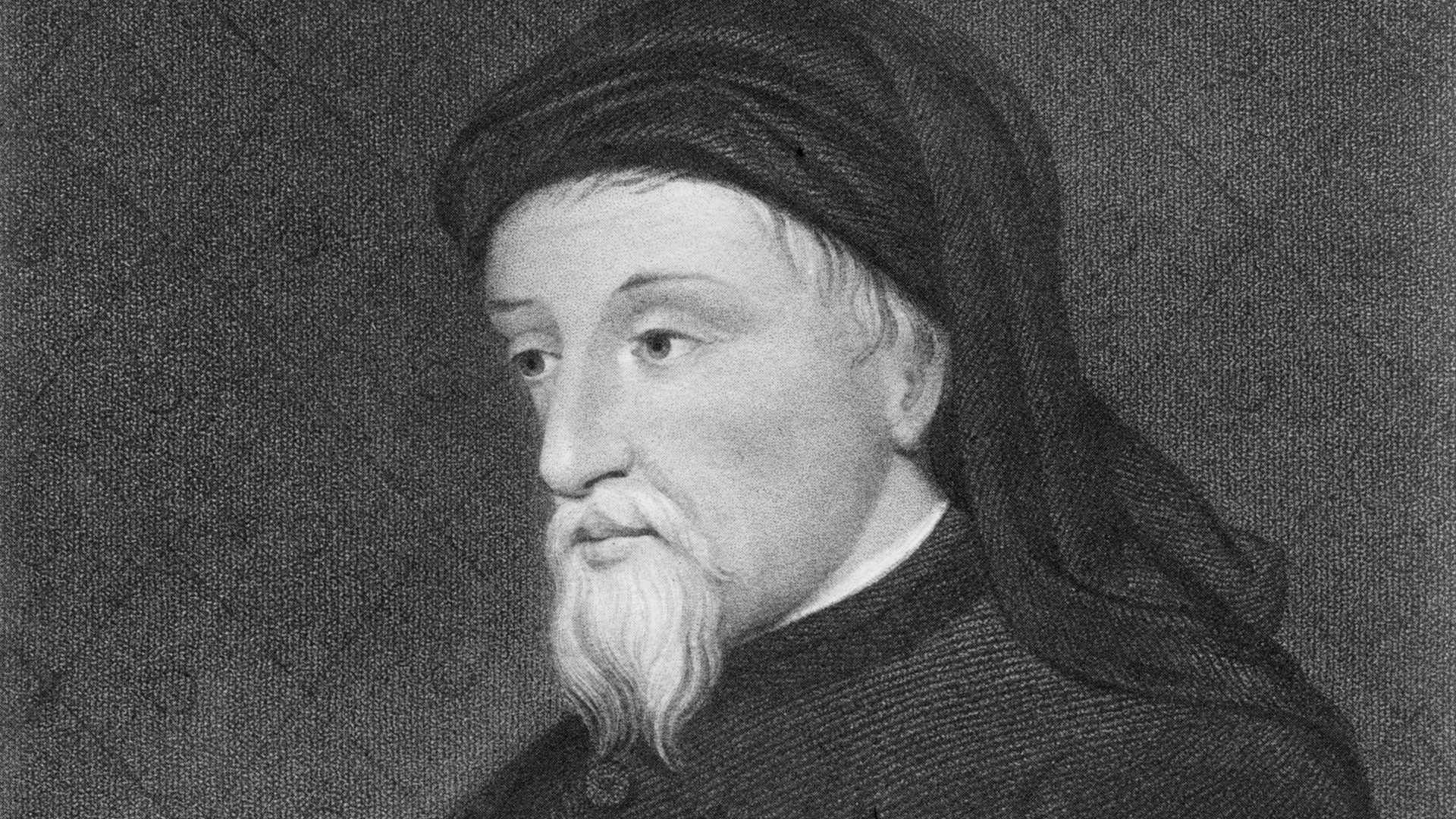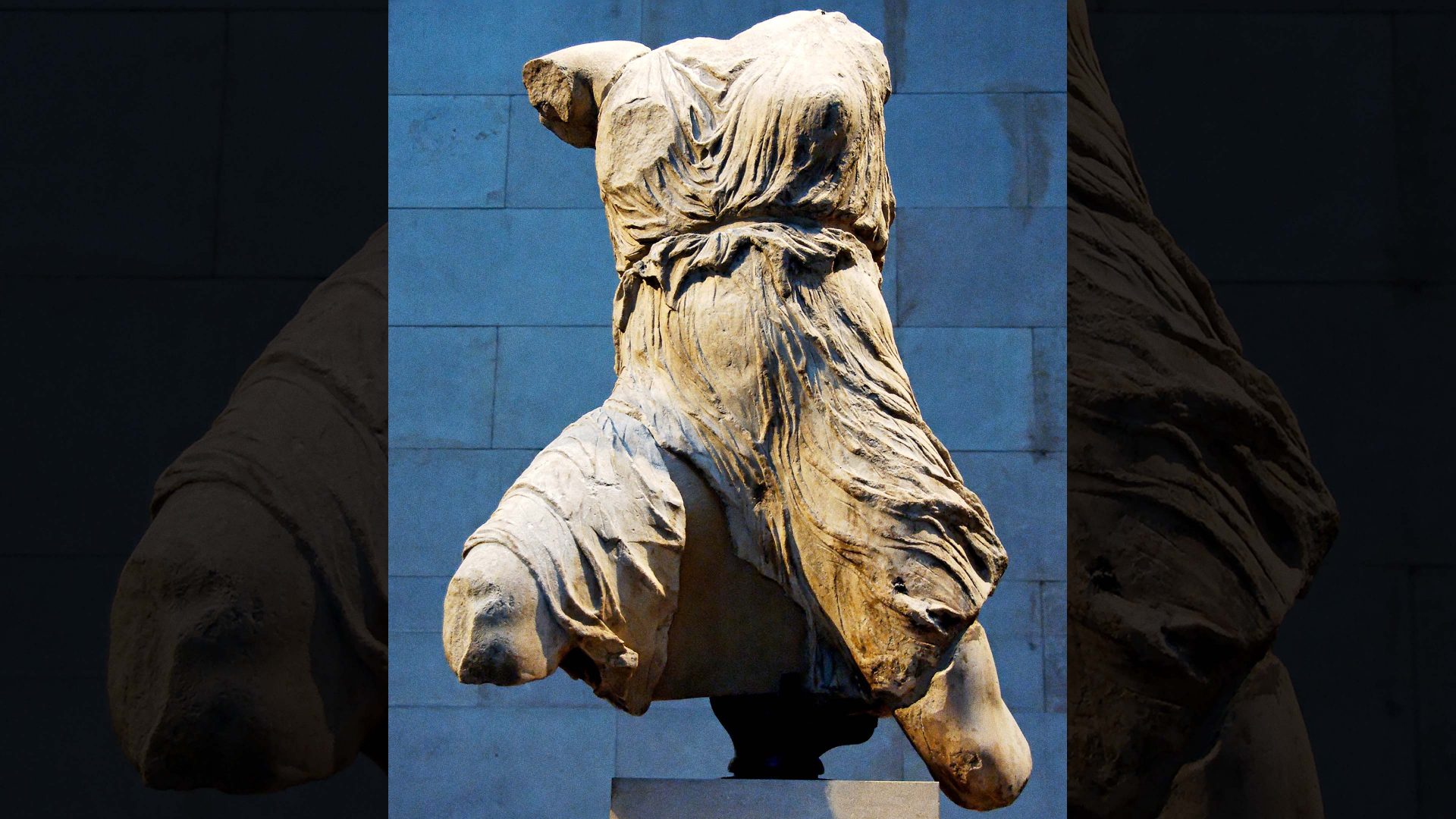Angela Carter, Hanif Kureishi, and Iris Murdoch, but also George Eliot (who translated Spinoza) and TS Eliot (whose PhD thesis was on FH Bradley), and long before them Denis Diderot and François-Marie Arouet (Voltaire); obviously Albert Camus, Simone de Beauvoir and Jean-Paul Sartre. All these fiction writers and poets, and more, either studied philosophy at university, were professional philosophers, or had a deep interest in the subject. And I have a new writer to add to my list: Geoffrey Chaucer.
At a press viewing for the Chaucer: Here and Now exhibition (just opened at the Bodleian Library in Oxford) I had an interesting conversation with the show’s curator, Prof Marion Turner, author of Chaucer: A European Life. Chaucer has long been presented as the father of English literature because he chose to use an early form of the language (Middle English) rather than French or Latin, but also, I suspect, because in his Canterbury Tales he depicted a diverse group of English characters travelling together on a pilgrimage from Southwark to the shrine of Thomas à Becket in Canterbury Cathedral. Chaucer’s serious interest in philosophy is less often mentioned.
One of the pilgrims, the Clerk of Oxenford, is a skinny philosopher, a scholar-student who would rather have 20 books of Aristotle in black and red binding than fine clothes. Despite his poverty, he is completely dedicated to his logical studies. Most of the descriptions of the pilgrims in the Prologue are satirical, sometimes viciously so, but there’s real admiration in Chaucer’s description of this emaciated student as someone who would gladly both learn and teach.
Chaucer’s interest in philosophy was long-standing. A contemporary, Thomas Usk, described him as “the noble philosophical poet”. Early in his writing career Chaucer translated the medieval bestseller Boethius’s The Consolation of Philosophy from Latin into Middle English. King Alfred had translated it before him, and Queen Elizabeth the First did so later. This remarkable book, written in the sixth century, was one the most widely read philosophical texts throughout the medieval period.
Boethius, a Roman aristocrat, wrote it while in prison. Accused of treason, perhaps falsely, by Theodoric the Ostrogothic king who ruled Rome, he was on death row awaiting execution. In The Consolation he describes this unfortunate situation and bemoans his lot, particularly his fall from a position of high public esteem.
But then Philosophy personified as a tall beautiful woman appears before him in his cell. She tells him that he shouldn’t mope and shouldn’t abandon her. The wheel of fortune turns – sometimes you are at the top and sometimes at the bottom. That’s just how it is. Take the hit. Don’t be dejected. True goodness doesn’t come from public success or riches, she tells him, but rather from within, from the mind and its relation to God.
They get into a conversation about good and evil, chance, free will and predestination and Boethius is persuaded as, presumably, were many of the book’s readers, that God has a plan for humanity: evil people can’t be truly happy, and God’s foreknowledge doesn’t destroy the possibility of human choice. Boethius the author, presumably consoled by working through these ideas, didn’t get to enjoy the book’s post-publication success, however, as he was garrotted.
Another reason for liking Chaucer, apart from his interest in philosophy and for the wonderful Canterbury Tales, was his enlightened attitude to Europe. Turner has made a very strong case for seeing Chaucer as principally a European writer rather than simply an English one. His Englishness has often been overplayed, which is somewhat strange because England didn’t exist in its present form in the 1300s. He came from a multilingual background – born in a London ward with more immigrants in it than any other.
His father was a wine merchant, and Chaucer worked as a customs officer on the Thames, having daily contact with traders from many different countries. Unusually for his time, he spoke Italian in addition to the usual French and Latin learnt by the higher classes. He was sent on diplomatic missions abroad, too – at least twice travelling to Italy, riding across the Alps. He also travelled to Navarre in what is now northern Spain, and to France and to the Low Countries.
His most important inspirations were the Italians Boccaccio, Petrarch, and Dante. A poet and philosopher with strong connections to the rest of Europe. That’s how we should see him. Not as a quintessentially English writer, but as a great European.



